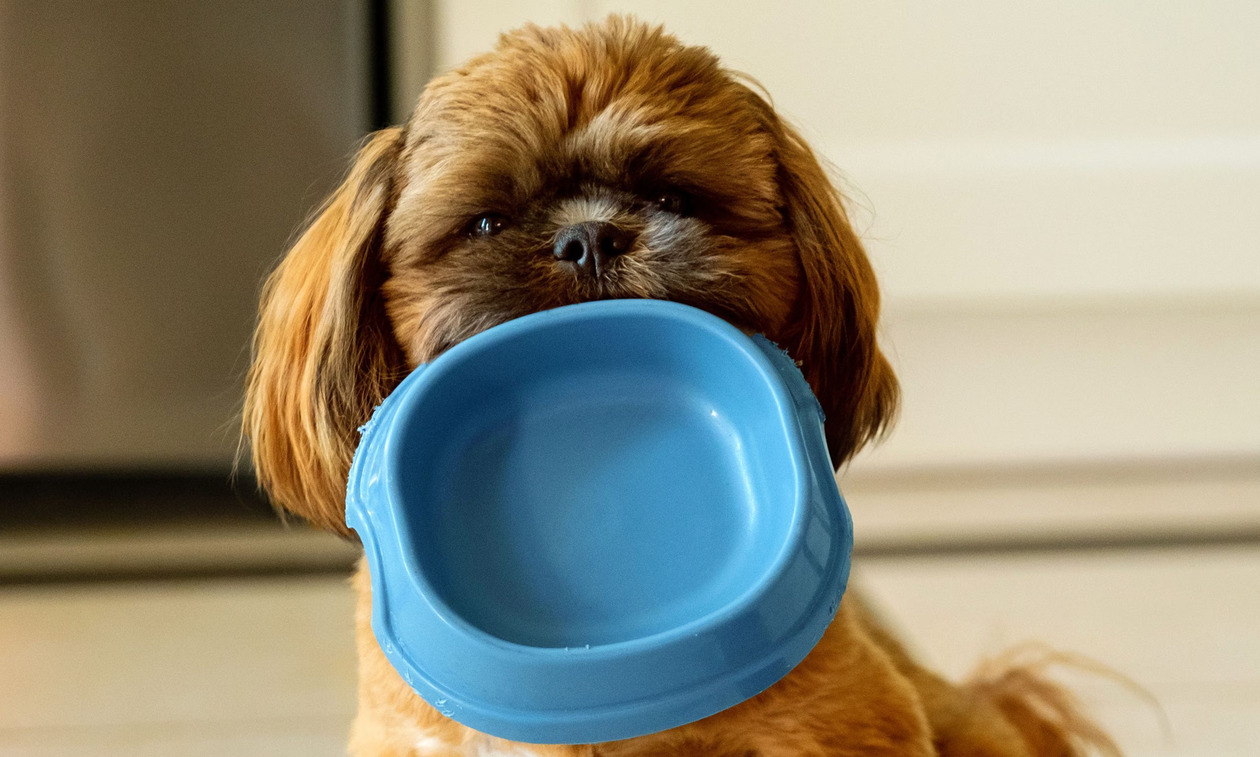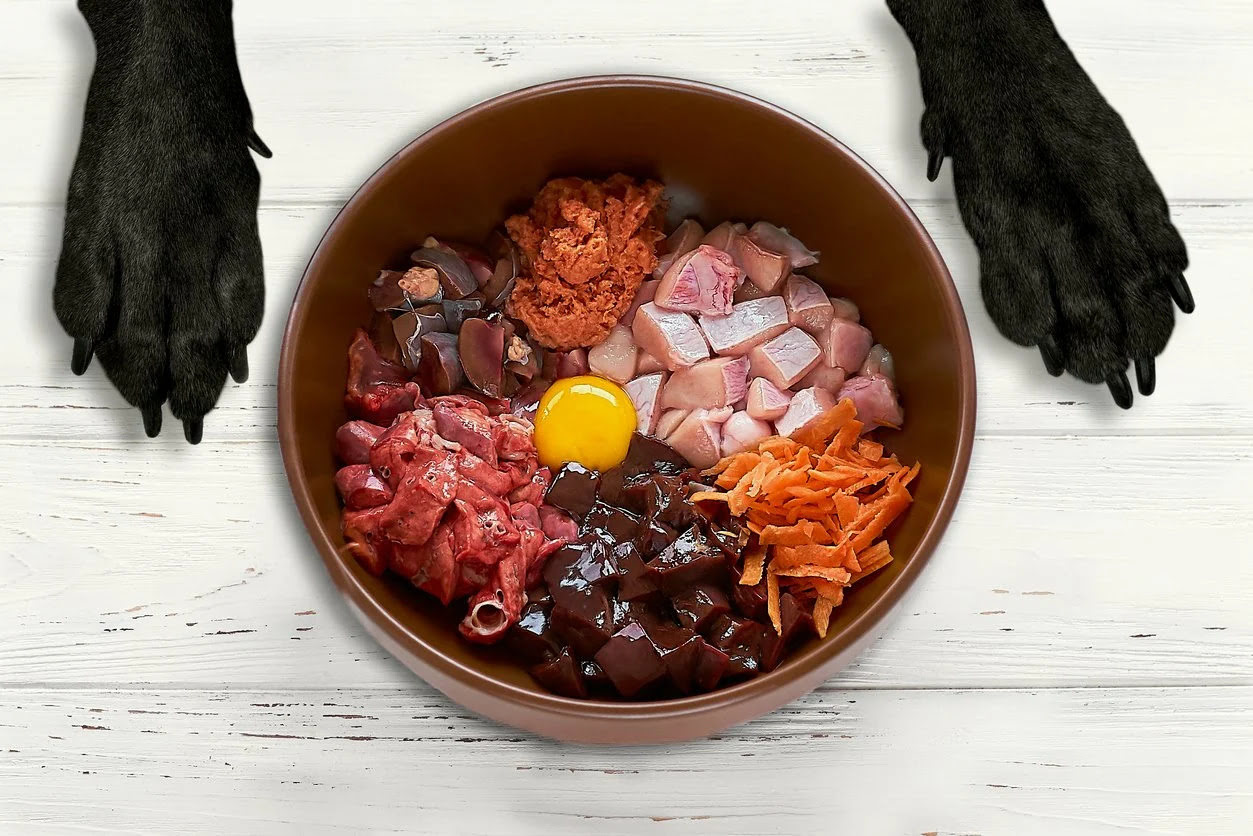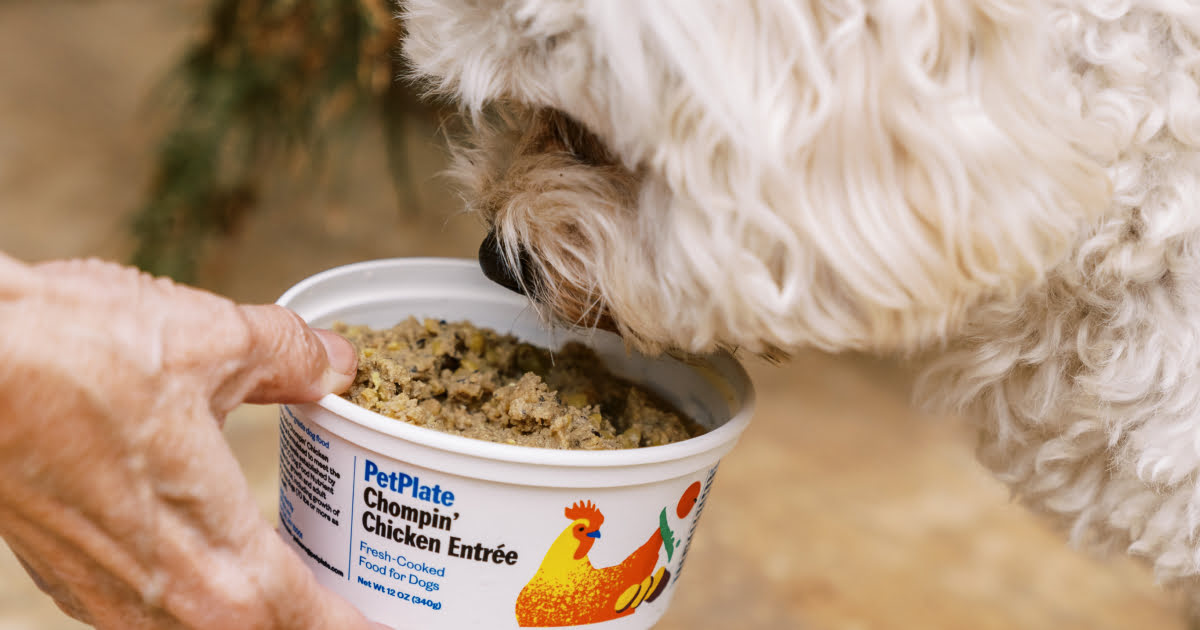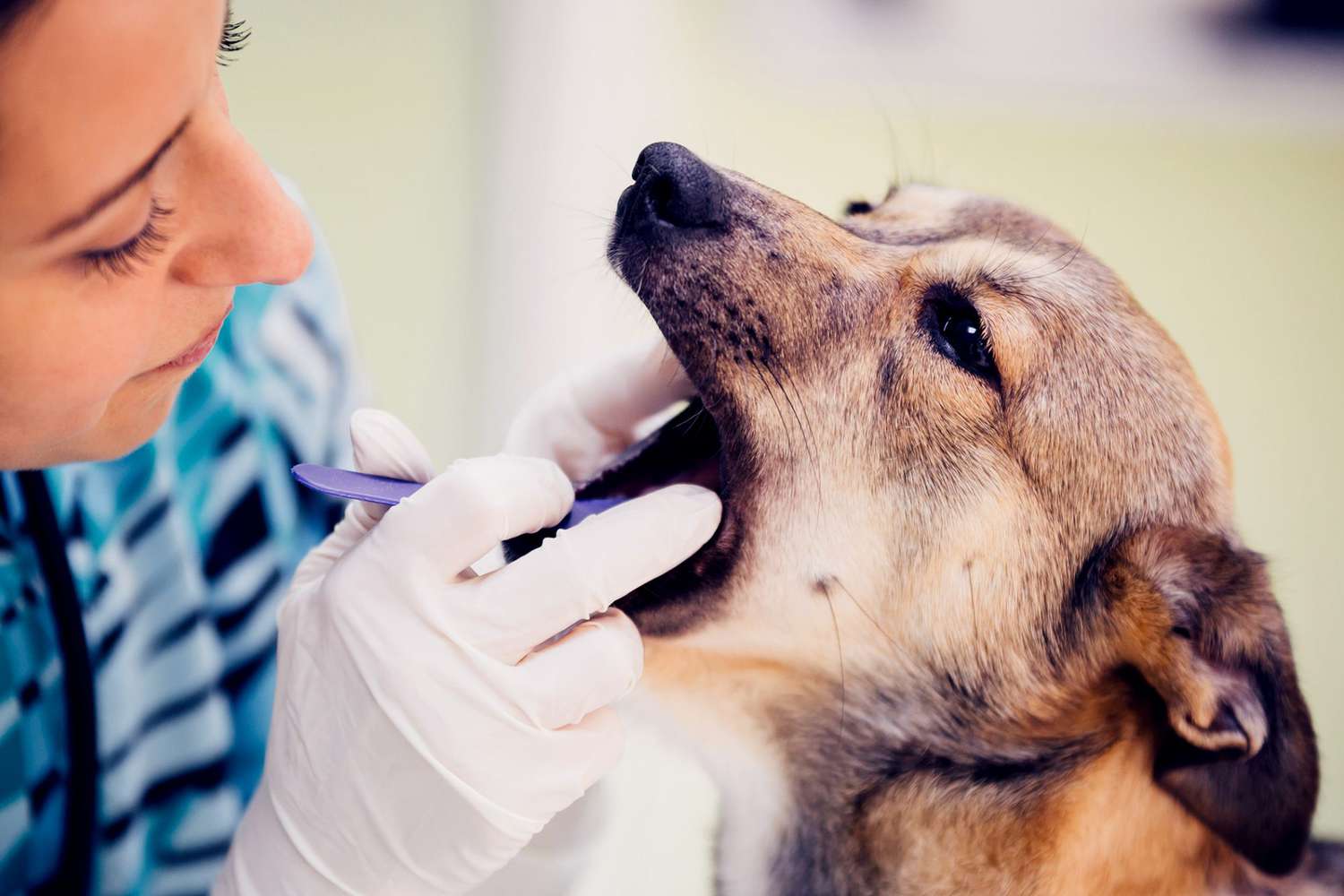Home>Health & Wellness>Nutrition & Diet>What Is The Best Diet For A Dog Who Easily Gets Diarrhea


Nutrition & Diet
What Is The Best Diet For A Dog Who Easily Gets Diarrhea
Published: January 28, 2024
Discover the best nutrition and diet for dogs prone to diarrhea. Learn how to improve your dog's digestive health with the right diet.
(Many of the links in this article redirect to a specific reviewed product. Your purchase of these products through affiliate links helps to generate commission for Pawsomeoldies.com, at no extra cost. Learn more)
Table of Contents
Introduction
When it comes to our furry companions, ensuring their well-being is a top priority. Just like humans, dogs can experience digestive issues, with diarrhea being a common concern for many pet owners. While the occasional bout of diarrhea may not be cause for alarm, chronic or severe cases can indicate underlying health issues that require attention.
Diet plays a crucial role in managing a dog's digestive health, and finding the best diet for a dog prone to diarrhea is essential for their overall wellness. Whether your canine companion has a sensitive stomach or is prone to gastrointestinal upset, selecting the right diet can make a significant difference in their comfort and quality of life.
In this comprehensive guide, we will delve into the factors that contribute to diarrhea in dogs, explore the considerations for choosing an appropriate diet, and highlight the best diet options to support dogs prone to digestive issues. Additionally, we will provide valuable tips for transitioning your dog to a new diet, ensuring a smooth and successful adjustment.
By understanding the intricacies of canine nutrition and digestive health, pet owners can make informed decisions to promote their dog's gastrointestinal well-being. Let's embark on this journey to discover the best diet for dogs prone to diarrhea, empowering pet owners with the knowledge and tools to support their beloved furry friends.
Read more: What Is The Best Food Diet For Dogs?
Understanding the Causes of Diarrhea in Dogs
Diarrhea in dogs can stem from a myriad of factors, ranging from dietary indiscretion to underlying health conditions. Understanding the potential causes of diarrhea is pivotal in addressing the issue effectively and promoting a dog's digestive wellness.
Dietary Indiscretion
One of the most common causes of diarrhea in dogs is dietary indiscretion, which refers to the consumption of inappropriate or spoiled food, garbage, or non-food items. Dogs are notorious for scavenging, and ingesting unfamiliar or unsuitable substances can lead to digestive upset and diarrhea.
Food Intolerances and Allergies
Just like humans, dogs can develop food intolerances or allergies to certain ingredients in their diet. Common culprits include wheat, corn, soy, and various proteins such as beef, chicken, or dairy. When a dog's immune system reacts adversely to specific food components, it can manifest as diarrhea, along with other symptoms such as itching, skin issues, and gastrointestinal discomfort.
Bacterial and Viral Infections
Bacterial and viral infections, such as salmonella, E. coli, or parvovirus, can cause acute diarrhea in dogs. These pathogens can be transmitted through contaminated food, water, or contact with infected animals. Infections may lead to severe gastrointestinal distress and necessitate prompt veterinary intervention.
Parasitic Infestations
Parasites such as roundworms, hookworms, giardia, and coccidia can wreak havoc on a dog's digestive system, resulting in diarrhea and potential weight loss. These microscopic invaders can be acquired through ingestion of contaminated soil, water, or feces, posing a significant threat to a dog's gastrointestinal health.
Underlying Health Conditions
Diarrhea can also be a symptom of underlying health conditions, including inflammatory bowel disease, pancreatitis, gastrointestinal tumors, or endocrine disorders. These conditions require thorough diagnostic evaluation by a veterinarian to determine the appropriate treatment and dietary management.
By recognizing the diverse causes of diarrhea in dogs, pet owners can take proactive measures to mitigate the risk factors and provide their canine companions with a supportive and nourishing diet. Identifying the root cause of diarrhea is crucial in tailoring an effective dietary approach to alleviate gastrointestinal distress and enhance a dog's overall well-being.
Factors to Consider When Choosing a Diet for a Dog with Diarrhea
When selecting a diet for a dog prone to diarrhea, several crucial factors should be taken into account to promote digestive health and overall well-being. These considerations play a pivotal role in addressing the underlying causes of diarrhea and providing optimal nutrition for canine gastrointestinal support.
Ingredient Quality and Digestibility
The quality of ingredients in a dog's diet significantly impacts digestive function. Opting for high-quality, easily digestible ingredients can reduce the likelihood of gastrointestinal upset. Look for diets containing premium animal proteins, wholesome grains, and easily digestible carbohydrates, while avoiding artificial additives, fillers, and potential allergens.
Read more: What Dog Food Is Best For Diet?
Limited Ingredient Formulas
For dogs with known food sensitivities or allergies, limited ingredient diets can be beneficial. These formulas feature a simplified ingredient list, minimizing the risk of triggering adverse reactions. By eliminating potential allergens and focusing on a few key components, such as a single protein source and easily digestible carbohydrates, these diets can support digestive health in sensitive dogs.
Balanced Nutrition
A well-balanced diet is essential for meeting a dog's nutritional requirements while supporting digestive function. Ensure that the chosen diet provides adequate levels of essential nutrients, including protein, fats, carbohydrates, vitamins, and minerals. Balanced nutrition promotes overall health and aids in maintaining a robust immune system, crucial for addressing gastrointestinal challenges.
Digestive Health Supplements
Incorporating digestive health supplements, such as probiotics and prebiotics, can aid in restoring and maintaining a healthy gut microbiome. These beneficial microorganisms support digestive function, enhance nutrient absorption, and contribute to a resilient gastrointestinal environment. Additionally, supplements containing digestive enzymes can assist in the breakdown and assimilation of nutrients, easing the digestive burden on sensitive dogs.
Veterinary Guidance
Consulting with a veterinarian is paramount when choosing a diet for a dog with diarrhea. Veterinarians can provide valuable insights into the specific dietary needs of individual dogs, offer recommendations tailored to their health status, and conduct diagnostic evaluations to identify underlying issues contributing to diarrhea. Professional guidance ensures that dietary choices align with a dog's unique requirements and health considerations.
By carefully considering these factors when selecting a diet for a dog with diarrhea, pet owners can take proactive steps to support their canine companions' digestive wellness. Thoughtful dietary choices, coupled with veterinary expertise, can play a pivotal role in managing and alleviating gastrointestinal distress, ultimately enhancing a dog's quality of life.
Best Diet Options for Dogs Prone to Diarrhea
When it comes to choosing the best diet for dogs prone to diarrhea, several options can provide the nutritional support and digestive sensitivity required to promote gastrointestinal wellness. These diet choices aim to address the underlying causes of diarrhea while offering balanced nutrition and digestive support for canine companions.
Limited Ingredient Diets
Limited ingredient diets feature a simplified recipe with a minimal number of carefully selected components, making them an excellent choice for dogs with food sensitivities or allergies. By focusing on a single protein source, such as lamb, salmon, or duck, and easily digestible carbohydrates like sweet potatoes or rice, these diets minimize the risk of triggering adverse reactions. Additionally, limited ingredient formulas often exclude common allergens such as wheat, corn, soy, and dairy, providing a gentle and nourishing option for dogs prone to gastrointestinal upset.
Grain-Free Formulas
Grain-free diets, formulated without traditional grains such as wheat, corn, or soy, offer an alternative for dogs with suspected grain sensitivities. Instead, these diets utilize alternative carbohydrate sources like peas, lentils, or chickpeas to provide energy and fiber. Grain-free formulas can be beneficial for dogs exhibiting digestive sensitivity to grains, offering a well-rounded and easily digestible diet to support their gastrointestinal health.
Novel Protein Formulas
Novel protein diets feature unique and uncommon protein sources that a dog may not have been previously exposed to, such as venison, bison, or rabbit. These novel protein sources are selected for their hypoallergenic properties, making them suitable for dogs with known protein sensitivities or allergies. By introducing novel proteins, these diets aim to minimize the risk of triggering adverse reactions, providing a novel and nourishing option for dogs prone to digestive disturbances.
Read more: Who Gets More Fleas: Cats Or Dogs
Prescription Diets
In cases where a dog experiences chronic or severe gastrointestinal issues, prescription diets formulated specifically for digestive health may be recommended by veterinarians. These diets are designed to address specific gastrointestinal conditions, such as inflammatory bowel disease or pancreatitis, and often feature highly digestible ingredients, precise nutrient profiles, and therapeutic additives to support digestive function. Prescription diets play a crucial role in managing complex digestive disorders and promoting optimal gastrointestinal wellness in affected dogs.
Homemade or Raw Diets
Some pet owners opt to prepare homemade or raw diets for their dogs, allowing for complete control over the ingredients and cooking methods. When carefully formulated under veterinary guidance, homemade diets can offer a tailored approach to address a dog's specific dietary needs and digestive sensitivities. Raw diets, comprising raw meat, bones, and organs, are also favored by some pet owners seeking to mimic a dog's ancestral diet. However, it's essential to exercise caution and ensure that homemade and raw diets are nutritionally balanced and free from potential contaminants to support a dog's digestive health effectively.
By exploring these diverse diet options, pet owners can make informed choices to address their dog's susceptibility to diarrhea and promote optimal gastrointestinal wellness. Each diet option presents unique features and benefits, catering to the varying dietary needs and sensitivities of dogs prone to digestive disturbances. Selecting the best diet for a dog prone to diarrhea involves careful consideration of individual dietary requirements, potential allergens, and the guidance of veterinary professionals to ensure a tailored and supportive approach to canine digestive health.
Tips for Transitioning to a New Diet
Transitioning to a new diet is a gradual process that requires careful planning and consideration to minimize digestive upset and ensure a smooth adjustment for your dog. Whether switching to a limited ingredient formula, grain-free diet, or novel protein formula, implementing the following tips can facilitate a successful transition and support your dog's digestive well-being.
Gradual Transition
Gradually introduce the new diet by blending it with your dog's current food over a period of 7 to 10 days. Start by mixing a small portion of the new diet with the existing food, gradually increasing the proportion of the new diet while decreasing the old food. This gradual transition allows your dog's digestive system to adapt to the new ingredients, reducing the likelihood of gastrointestinal disturbances.
Monitor Digestive Response
Observe your dog's digestive response during the transition period. Keep an eye on stool consistency, frequency of bowel movements, and any signs of digestive discomfort. If your dog experiences loose stools or other digestive issues, consider slowing down the transition process or adjusting the ratio of the new and old diets to ease the adjustment.
Maintain Consistency
Consistency is key during the transition phase. Aim to feed your dog at regular intervals and avoid sudden changes in feeding schedules. Consistent mealtimes and portion sizes contribute to a stable digestive environment, aiding in the transition to the new diet and minimizing potential disruptions to your dog's gastrointestinal health.
Hydration
Ensure that your dog has access to fresh, clean water at all times, especially during the transition period. Proper hydration supports digestive function and helps alleviate any mild gastrointestinal discomfort that may arise during the diet switch. Encouraging adequate water intake is essential for maintaining overall well-being during the transition process.
Patience and Observation
Exercise patience and attentiveness throughout the transition to a new diet. Every dog responds differently to dietary changes, and it's important to remain patient as your canine companion adapts to the new food. By closely observing your dog's behavior, appetite, and overall well-being, you can make informed adjustments and address any concerns that may arise during the transition.
By adhering to these tips for transitioning to a new diet, pet owners can facilitate a seamless and successful adjustment for their dogs while promoting digestive health and overall well-being. Thoughtful planning, gradual introduction, and attentive monitoring are essential components of a smooth dietary transition, ensuring that your dog receives the nutritional support needed to thrive on their new diet.
Conclusion
In conclusion, finding the best diet for a dog prone to diarrhea is a multifaceted endeavor that requires careful consideration of various factors, including the underlying causes of gastrointestinal distress, dietary sensitivities, and the nutritional needs of individual dogs. By understanding the diverse causes of diarrhea in dogs, such as dietary indiscretion, food intolerances, infections, parasites, and underlying health conditions, pet owners can take proactive steps to address these issues through thoughtful dietary choices and veterinary guidance.
When selecting a diet for a dog with diarrhea, factors such as ingredient quality, digestibility, balanced nutrition, and the incorporation of digestive health supplements play a pivotal role in supporting canine digestive wellness. Limited ingredient diets, grain-free formulas, novel protein formulas, prescription diets, and carefully formulated homemade or raw diets offer diverse options to cater to the unique dietary needs and sensitivities of dogs prone to gastrointestinal disturbances.
Transitioning to a new diet requires a gradual and patient approach, allowing dogs to adapt to the new ingredients while minimizing the risk of digestive upset. By following a structured transition plan, monitoring digestive responses, maintaining consistency, and ensuring proper hydration, pet owners can facilitate a smooth adjustment to a new diet, promoting optimal digestive health for their canine companions.
Ultimately, the well-being of our furry friends hinges on the thoughtful choices we make regarding their dietary needs. By prioritizing digestive health and selecting the best diet tailored to address a dog's susceptibility to diarrhea, pet owners can play a proactive role in enhancing their dogs' overall quality of life. Through a combination of informed decision-making, veterinary collaboration, and attentive care, pet owners can empower their canine companions to thrive on a diet that supports their digestive wellness, ensuring that they lead happy, healthy, and comfortable lives.
In the journey to discover the best diet for dogs prone to diarrhea, the bond between pet owners and their beloved dogs is strengthened, fostering a deep sense of care, understanding, and commitment to providing the best possible nutrition for our loyal and cherished companions.









